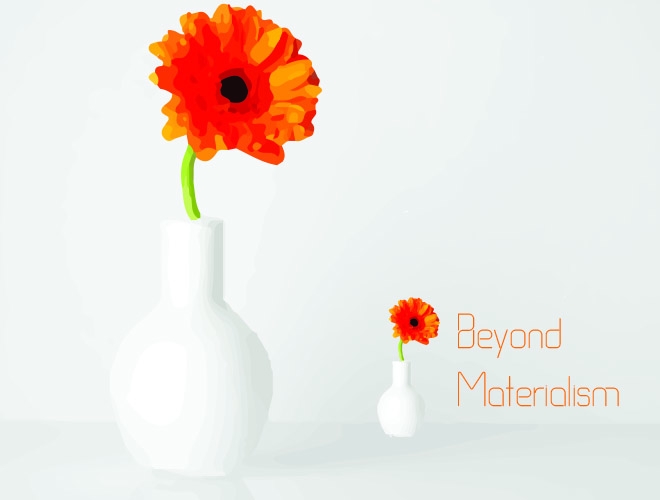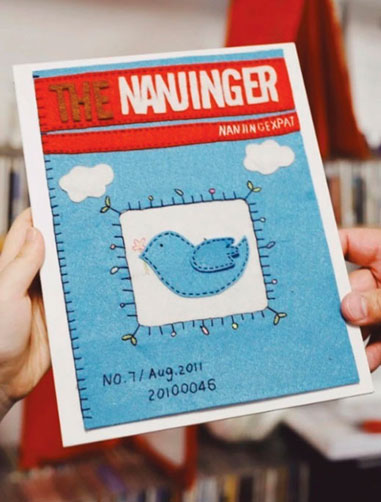Gucci, Rolex, BMW. Chinese social media tirelessly overflows with pictures of people flaunting their latest ludicrously priced possession; the combination of the rapid rise from extreme poverty to just as extreme wealth and the Chinese cultural phenomenon of “face” has created a consumption-obsessed society where the masses seem to believe that the value of one’s life is tied to the value of one’s car.
Yet, upon closer look, is China really only about materialism? As time passes, awareness is growing that the latest technology gadget from the brand with the half-eaten fruit is not the ingredient for a happy, fulfilled life. As many opponents of a materialistic lifestyle argue, hinging one’s happiness on the purchase of goods is a dangerous catch 22, that can only lead to discontentment. One always feels the need to purchase more items in order to achieve that feeling of satisfaction that comes at the moment of purchase, but disappears within a few moments of acquiring a new gadget. In response to this realisation, a number of developments are taking place across China as locals explore a world beyond materialism.
Sports On The Rise
In the growing urban environment, sports have witnessed a considerable surge in popularity and importance over the recent years, as more and more people become aware of the benefits of an active lifestyle for mental well-being. Speaking at the Global Partners and Industry Forum in Huai’an on 17th October 2014, Mr Peng Xiao, Vice Chair of the Centre of Sports Equipment of the State Sport General Administration of P. R. China, explained the change to the way of thinking that is slowly appearing in China. “With the rapid economic development of the past decades, China has now reached a level of prosperity at which it is not just about making money any more. Now, once the people have reached a certain degree of material wealth, they begin to strive for spiritual wealth as well. A big factor for a spiritually fulfilled life is an active and healthy lifestyle, hence the potential of the sports market in the coming years is incredibly vast.”
No sector is more indicative of the rising interest in keeping fit (while simultaneously connecting with nature) than the field of outdoor activity. As a fairly young market in China, it has experienced a remarkable surge in popularity. According to the China Outdoor Market report 2013 published by the China Outdoor Association (COA), the core market exhibited a 16.2 percent growth compared to 2012. Throughout the last decade its value has expanded from being worth merely ¥0.5 billion in 2003 to 30 times that amount, while spending on outdoor sports products has increased by 38.2 percent over the past two years alone. These figures indicate that for a growing number of Chinese people, the Louis Vuitton bag is being replaced by a Northland backpack as the disillusioned make their way to the mountains rather than the mall.
Slow City, Slow Life
Going hand-in-hand with China’s economic development and its thirst for financial and materialistic wealth is the hectic pressurized lifestyle of the big urban centres. Although infamous for its rapid pace of development, ironically the Middle Kingdom has at the same time become a pioneer for the Slow Movement among the world’s developing countries. Our very own Nanjing is leading the march against uncontrolled economic growth and for a sustainable world, as its municipality is home to the village of Yaxi in Gaochun district, which earned the title of “Slow City” as early as 2010. Slow cities by their designation promote a slow pace and lifestyle, sustainable development and environmental protection; all characteristics with which materialism can simply not be reconciled.
In Yaxi, the only previously polluting industry, a chemical factory, was made to shut down 20 years ago. No high-end technological gadgets and luxury clothes are produced here; instead people are committed to respecting nature according to Cittaslow director Pier Giorgio Olivetti. The requirements to be awarded the title include a village population not exceeding 50,000 as well as measures against water, air and noise pollution, organic farming practices, the promotion of locally produced crafts and supporting an eco-friendly development.
That Yaxi has hit a nerve with the Chinese populace becomes evident in its popularity as a haven of respite from the stress of city life. In 2010, the year of its designation as International Slow City by Cittaslow, the village welcomed 156,000 visitors. Within the space of two years that number skyrocketed to 1.17 million, making Yaxi a tourist hot spot in the Nanjing area and illustrating perfectly the strong desire among Chinese travellers to leave the high street to experience nature.
Minimalism Entering China
A trend that originated in the US, a country often criticized for its heavy focus on consumption and materialism, is minimalism. This form of ideology attempts to steer away from a life obsessed with the things one owns, for example through movements such as the “100 Things Challenge”. According to David Michael Bruno, the creator of the movement, the goal of it is to “break free from the confining habits of excessive consumerism. A lot of people around the world feel ‘stuck in stuff’. They feel like their closets and garages are too full of things that do not really make their lives much better.” His way of leading a fulfilling and happy life is therefore to limit the number of his possessions to 100, whereby a pair of socks counts as two items. With this approach, argues Bruno, people will amass less clutter and actually focus on the important things in life.
The trend has already found its way into China. In November 2014, the Global Times Chinese news outlet published an in-depth report of Wang Zhe, an HR employee at an international company in China, who at the age of 34 decided that enough was enough. When he tried and failed to pick a formal suit out of his sizable clothing collection, Wang experienced an epiphany. “I used to spend lots of money buying fashionable clothes, hoping to win people’s recognition and attention. But at that moment I felt that I had just bought a bunch of useless rubbish,” he told the Global Times. Since this fateful realisation, Wang has completely altered his approach to material possession, and after hearing about the 100 Things Challenge decided to give it a try. He started with only his clothes, reducing the size of his collection from over 400 to less than 100. This already constitutes a considerable achievement, although the challenge originally dictates that one can only own 33 items of clothing. Naturally, the more items Wang threw away the more difficult it became to further limit his possessions. To maintain his minimalist lifestyle, Wang has a one in, one out rule as part of which only broken items will be replaced but no new ones are purchased.
Although packing up one’s entire life and throwing it in the bin is undoubtedly quite a drastic step, he speaks very positively of this experiment, explaining that this material clean-out really pushes one to reconsider what is truly important in life; aside from the obvious benefits of putting less pressure on the environment and one’s wallet. The money saved from no longer indulging in unnecessary purchases, the young Chinese choses to spend on traveling in order to collect real life experiences rather than adding more electronic devices to his possessions.
While his story has definitely attracted the attention of the media and might have even inspired a few followers, minimalism in China has been a topic of discussion for half a decade now. Qi Zhai for the New China magazine asked the question back in 2010 whether such a post-industrial movement was really relevant to the Middle Kingdom; after all in a country where less than 50 years ago a majority of the population were starving to death, owning more than 100 things could be seen as a luxury rather than a problem. Chinese website Youmi published an article about the 100 Thing Challenge that same year, and according to Qi many of the reader comments suggested at the time that it was too early for a reconsideration of the materialist approach to life. “These examples from developed countries only make us feel the discrepancy. ‘Cutting the fat’? We still hesitate when it comes to buying a meal,” commented one user while others joked about how glad they would be if they owned that many items.
Then again, with the rapid pace at which everything in China moves, in the five years that have passed since, Wang Zhe’s story has managed to catch the eye of major media outlets, suggesting a certain fascination with the idea. As Qi Zhai argues, just because it is currently not entirely relevant to a developing country such as China, the nation has the “late mover advantage” of being able to learn from the mistakes of already industrialized nations; after all it is never to early to start reflecting on your life.
This article was first published in The Nanjinger Magazine, March 2015 Issue. If you would like to read the whole magazine, please follow this link.











